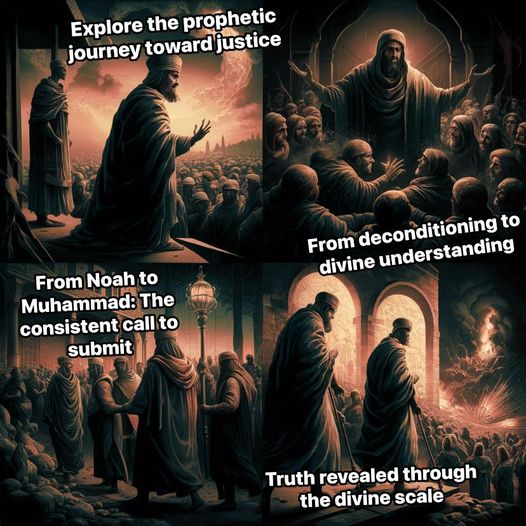
Human thinking is shaped by the social environment, leading to unique and often resistant mindsets. Upon reaching maturity, it is crucial for individuals to examine and decondition their mindset, marking the start of their intellectual journey and essential for correcting their thinking.
Without deconditioning, individuals remain confined to their assumptions. This process purifies the mind, revealing God’s creation plan, natural laws, and hidden external realities, ensuring right thinking, action, and planning. Without it, understanding truth and external realities is impossible.
A person’s actions reflect their mindset: if the mindset is right, actions will follow; if wrong, both intentions and actions will be flawed. Therefore, deconditioning is essential for impartial thinking.
Differences among people are natural and promote development through discussion and intellectual exchange. When confined to peaceful limits, differences are beneficial, but they become harmful when leading to conflict and violence. Peaceful differences are a blessing, while violent differences are problematic.
The Quran (2:213) states that humanity originally existed as a single community, but as time passed, differences emerged in understanding the Almighty and His divine plan. To address these differences, the Almighty sent revelations and scriptures as a guiding truth throughout history. Although God offered one truth and a single religion centered on faith in and submission to one God, human disagreements eventually gave rise to various sects after the departure of the messengers. For instance, political disputes following the death of Prophet Muhammad (pbuh) led to the division of the Shia and Sunni sects within a few decades.
The Quran describes all revealed scriptures as “balance” or “scale” (Arabic: “Meezan”) in verse 57:25, indicating that these books were given to the messengers to uphold justice and distinguish truth from falsehood. In verses 5:44-47, the Quran explains that the Torah and the Gospels were sent to guide people in resolving religious disputes. Verse 5:48 further clarifies that the Quran acts as the ultimate criterion over all previous scriptures to address religious differences. Therefore, political disagreements between Shia and Sunni should be resolved solely in light of the Quran, as it provides the context and background for all revelations. Similarly, issues such as the status of Jesus (PBUH), the significance of Jerusalem, polytheism, the initial selection of the children of Israel to propagate God’s religion, God’s subsequent choice of the children of Ishmael for this task, and the finality of prophethood should be addressed through the Quran, which serves as the decisive arbitrator over previous scriptures.
The Quran also explicitly states in verses 42:12-18 that the same religion was given to all prophets and messengers, including Muhammad, Jesus, David, Moses, Abraham, Lut, and Noah: the call to submit to one God (in Arabic, this is referred to as Islam, see 3:84, 2:136).
Examining the journey of all the messengers reveals a consistent pattern. This journey typically includes warning about the afterlife, issuing intensified warnings, thoroughly conveying the truth, migrating or separating believers from unbelievers, and finally, delivering acquittals and punishments. The journeys of Noah, Abraham, Lut, Moses, Jesus, and Muhammad (peace be upon them all) follow this same sequence. When a messenger—not just a prophet—is sent to a community, a form of mini Judgment Day occurs for those who reject their messenger.
In the case of Jesus (pbuh), the punishment for the children of Israel occurred after God raised him to heaven when the unbelievers attempted to crucify him (Quran 3:55). With no place to migrate, God took him up, and a few years later, the Roman army was sent to punish the Israelites, as Jesus had predicted during his lifetime (see Matthew 23:27-28, Matthew 24:1-2). Jesus foretold the destruction of the temple in Jerusalem, warning of impending judgment and urging the people to be prepared. Since Jesus was the last messenger sent to the children of Israel, and they rejected him, they were later punished. Similar patterns are seen in the destruction of the town where Abraham lived before migrating with his family to Palestine and Mecca, the destruction of the towns of Lut’s people, the defeat of Pharaoh’s army, and the battles between polytheists and believers after Muhammad (pbuh) was instructed to migrate from Mecca to Medina. These events consistently affirm the oneness of God and the unity of His religion.

